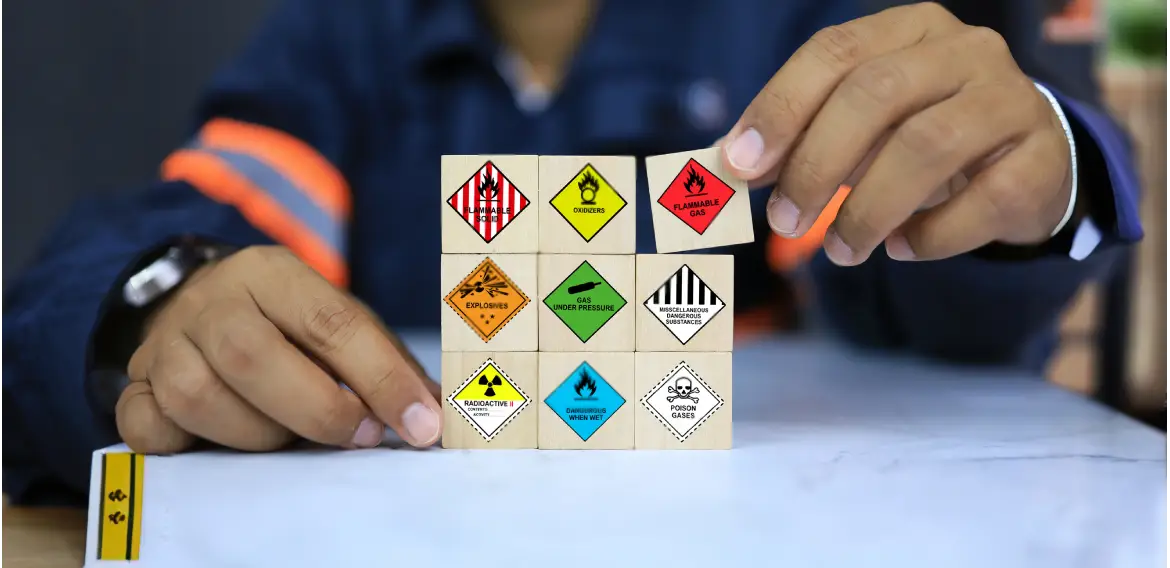The importance of good training can never be underestimated.
When it comes to a topic like Chemical Handling, the most natural reaction I come across is dread. There are pre-conceived ideas that are based on the title alone with the implication that this training is going to be boring.
This perception has its routes from training courses being delivered by technical experts who have a focus on technical content rather than engagement or relevance. A regulatory tick box exercise rather than any perceived understanding of the importance of effective and practical raining.
Now don’t get me wrong, content knowledge is extremely important (more on that later). However, I have been on my fair share of courses where the trainer has shown excellent factual knowledge.The issue was the way that this knowledge was imparted.
Having knowledge of the topic does not always carry over to excellent training. Content knowledge and content delivery remain very different skills. It would be an error to think that only one is necessary.
So, what are the skills required to become an effective and engaging trainer?
Now first of all , if you are an aspiring trainer and some of the skills I mention below you don’t possess, fear not! Everything can be learnt. I have no doubt that there are some very natural and talented trainers out there, but natural talent alone does not get you over the line.
Becoming a good trainer takes time and practice, and some of those skills still need to be learnt and always developed.
Here are four very important skills that make a great trainer and communicator.
Become a storyteller: Storytelling builds trust with your audience, it draws them and takes them on a journey. It gives them a rest from the more technical or complicated parts of a course and it lets them take a breath. Importantly it gives you the trainer the opportunity to engage with the audience in a personal and increasingly empathic way. Stories make ideas and theory’s come alive. A good storyteller takes the person with them on journey.
Be descriptive and let the audience use their imagination: The best story tellers have excellent timing, are always multitask by reading the room and adjusting their delivery accordingly, they have practiced intonation and the use of English as a stress based language, have rehearsed the punch line and the jokes, when you do this engagement is almost guaranteed.
Think quickly!: You are likely to encounter complex dynamics within the class. For first time trainers encountering a strange dynamic can be daunting and, in some cases, a serious confidence knocker. It can vary from the attitude of the attendees, language or learning difficulties, personal issues being brought into the classroom, or even the environment you may find yourself in.
Although you cannot always prepare for every situation you are likely to encounter, you can prepare for most. Be prepared by changing up or down the way you deliver the training, be flexible and learn patience. I recently started a course with 8 attendees and realised about 15 minutes into the course that 5 of them barely spoke a word of English.
I paused the course for a minute and spoke to one of the other guys who was fluent in both English and the other attendee’s language. I completely changed the way I delivered the course by using him as an interpreter. The moment I did this it was obvious that the engagement level of the 5 non-English speakers went up substantially.
Sure, for time reasons I did not tell as many stories, but I was in no doubt that the attendees understood the message and more importantly, enjoyed the process.
Know your content: The more you know you content and more confident you will be. Knowledge behind the content is vitally important if you wish to impart it.
Become an expert: The more you know the better prepared you are. But be aware that you are not getting bogged down with your technical knowledge, it is a fine line. However, By knowing the content, you can focus on the delivery.
You no longer need to think about what you are saying but more how you are saying it. If you don’t know the content you will find yourself bumbling around, getting lost, and it will show very clearly to all involved that you are out of your depth. People will pick up on it very quickly and you will find yourself losing confidence.
Practice, practice, and practice: I spend many a long hour practicing the delivery of any training course I am doing. This often involves me being alone in my lounge, Cookie the cat looking at me like I am crazy, projector on, practicing what I am saying, how I am saying it, the intonation, the stories, pausing for effective, everything.
Often only when I speak something out loud can I really get a sense of its effectiveness. Remember when it all goes wrong you will only fall to the level of training and practice you put in.
I recently completed two training courses for a high security prison, I spent a lot of time on the weekend before the training going through the training material and practicing what I am saying, this highlighted many phrases and stories that would be considered irrelevant or inappropriate for where I was.
I made the suitable adjustments and felt much confident when I was in the front running the course.
Conclusion:
Some of the best trainers I have ever known were not naturally gifted but worked hard at their craft. Being a good communicator is just that, it is a craft, you need to work at it, practice, and honestly evaluate you self. When you do this you become aware of you own faults or mis giving’s only then can you improve.

